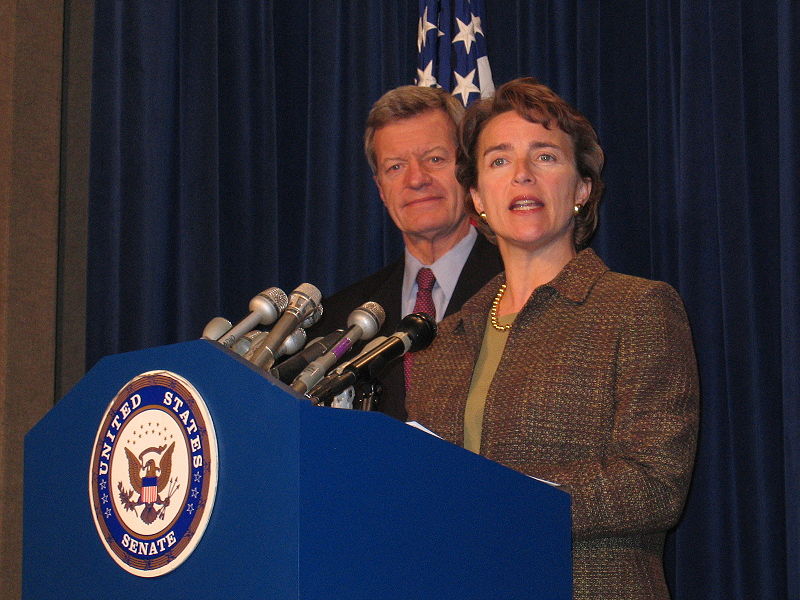“It seems sensible to make every effort to enlist the body’s own ability to heal itself—which is what, at bottom, placebos seem to do,” writes the Boston Globe.
All Articles
The Economist, while recognizing Obama’s tech savvy, is critical of his pessimistic view that new communication technologies distract the public rather than empower it.
The National Review writes that the U.S. is better poised to overcome the global recession than Europe because America encourages more risk taking and ingenuity.
In the wake of the financial crisis, many new metrics are being proposed that will measure living standards in a new and different way from the conventional Gross Domestic Product calculation.
While raising a child should be done with love and care, we need not think a few bad “formative years” dooms someone to a dysfunctional or psychologically tormented life.
“Regulations that raise the price of a new car shut some buyers out of the market. So tougher federal rules may have the perverse effect of leading to more traffic fatalities,” writes Steve Chapman. “
Using virtual reality, scientists in Europe put men in females’ bodies to measure how our own physical appearance affects our thoughts and behavior.
Robert Fisk writes that the Canadian government is complying with unfair American actions to ban journalists from reporting on the Guantanamo Bay military prison.
When we think things out, it is usually on paper. Writers scribble random thoughts on scraps near at hand and mine those jotted flashes of insight later for fuller, more […]
It is a sad state of affairs when I have to read down the blogroll on my personal blog to see any recent mention of the flood that just devastated […]
Sen. Blanche Lincoln (D-AR) is in trouble. She is struggling to survive a primary challenge from Lt. Gov. Bill Halter. Now it looks like she may be headed to a […]
Over the past couple of years, marine sustainability has risen to the top of the environmental movement’s concerns. But in a supply/demand market economy, our seafood choices as consumers have a significant impact on the issue. So how can design help consumers make smarter, more sustainable seafood choices?
Summertime is generally considered the height of festival season. That means everything from multi-artist concertpaloozas to glossy film festivals to avant-garde art installations. As artists and performers from around the […]
Federal regulators apparently allowed BP and dozens of other oil companies to begin drilling without obtaining mandatory environmental permits, according to the New York Times. By law, the Minerals Management […]
Carol Friedman always meets with her subjects before she photographs them. If she doesn’t, “then they’re just going to the dentist and they’re filled with fear.” But does the veteran […]
Brace yourself for some depressing climate change news. Even if we cut rncarbon emissions dramatically, we won’t really see the impact by the rnyear 2050, says Bjørn Lomborg,rn Director of the Copenhagen Consensus Center. So if the outlook is so rnbleak, what should we do in the meantime? Where should we direct our rnenergies? Lomborg has some ideas.
Daniel Wilkinson and Nik Steinberg write that the U.S. embargo of Cuba must end, but that it is naive to think that the Caribbean country’s government will suddenly reform as a result.
Detroit intends to take advantage of warm weather and new federal funding to demolish some 3,000 buildings by the end of September in order to “right size” the city.
There is a “peculiarly Japanese profession—part-private investigator, part-prostitute—whose function is the direct opposite of a dating agency: they break apart human relationships.
“There isn’t a wholesale rejection of capitalism” among the American public, says Nouriel Roubini, “but I think there was a greater faith 10 years ago in an unfettered, laissez-faire market economy.”
Several courageous Muslim feminists are challenging conservative male interpretations of Islam. “These women are quietly working within the culture, rather than against it.”
“Raw milk is one of those issues that riles people,” writes Corby Kummer. He looks at legislation in Massachusetts requiring that unpasteurized milk be bought directly from farms.
A study has found that by 2080, global warming could result in one-fifth of the world’s lizard species becoming extinct.
Scientists have figured out how independent, programmable nano-scale robots can be made out of individual molecules—with the robots’ actions programmed into their environment.
“The most frustrating thing about Facebook’s privacy policy is that it’s always changing,” writes Farhad Manjoo. The company should better respect users’ desire for privacy going forward.
America and Greece have lately been running large budget deficits, roughly comparable as a percentage of G.D.P., notes Paul Krugman. Yet markets treat the countries very differently.
“Every generation is born to this same anatomical legacy; how they then fashion it with clothing is, in miniature, the story of culture,” argues Susan J. Vincent in her sweeping […]
Octopus and hidden cameras go together like chocolate and peanut butter. You never know what those crazy cephalopods will get up to. Today, Boing Boing dug up some neat old […]
Heat death is a deceptive name. As Michio Kaku explains, entropy doesn’t necessarily refer to dramatic destruction; it’s more about how stuff just tends to fall apart.
New statistical analysis finds that all life on Earth shares a single common ancestor, confirming a “central pillar of evolutionary theory.”










